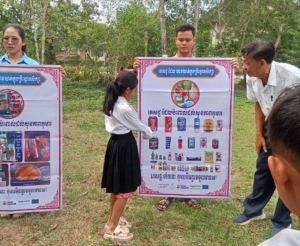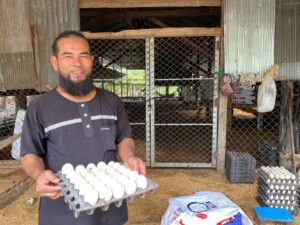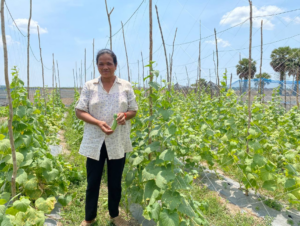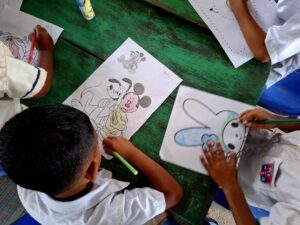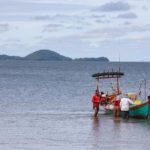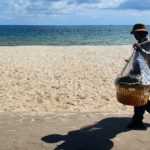PHNOM PENH – Uong An, the vice president of the Angkol community, launched the second phase of a campaign to preserve sea crabs in Kep and Kampot provinces on July 1, as Cambodia celebrated National Fish Day.
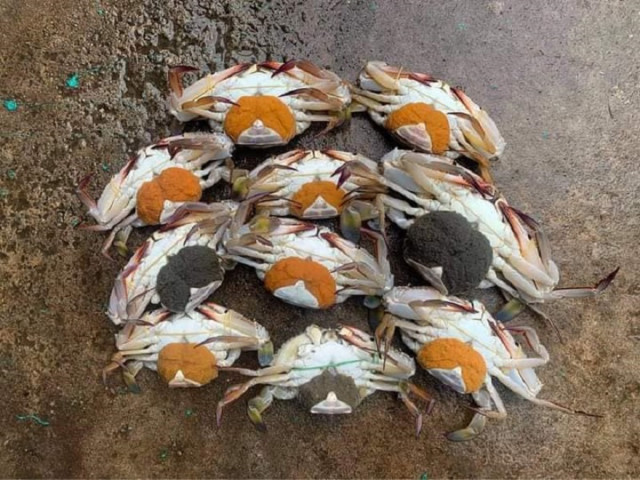
For one month, the community is asking fishermen not to sell egg-bearing female crabs to market sellers, in a move to increase the crustacean population in Cambodia’s southern seawaters.
The month of July is when most of the sea crabs’ spawning is happening, said Uong An, adding that without fishermen’s participation, the crabs might go extinct in the future.
To ensure crab catchers get involved in the program, the community asks them to either release egg-bearing female crabs back into the water when they catch them, or transfer them to the community, An told Thmey Thmey on July 3.
“The community buys these egg-bearing crabs 20,000 riel (about $5) per kilogram. This is our way to pay for fishermen’s fuel when they go to sea, and giving them compensation for lost earnings,” he said.
Consuming egg-bearing crabs has become increasingly popular in Cambodia, as consumers find them tastier than female crabs without eggs or male crabs.
But that consumption habit may put the species in jeopardy if nothing is done to repopulate the seabed.
The ongoing program in the Angkol community, close to the Vietnamese border, aims to invert that trend.
Once community members have put their hands on the egg-bearing crabs, they will keep them until the eggs have hatched. Only after that, the community will release the adult females into their natural environment.
It takes only one night for crabs carrying black eggs to extrude their period, but the gestation period can take up to 2 to 3 days for crabs carrying red eggs.
The community receives around 300 crabs carrying eggs every month. Each crab can produce thousands of eggs.
In addition the making little money by handling egg-bearing crabs for the community, fishermen will indirectly benefit from their cooperation as the campaign aims to avoid the species’ extinction, ensuring greater catches in the future.
“If we don’t do this, the crabs will be lost, meaning that the fishermen will fish fewer and fewer crabs. However, if we release the crabs carrying eggs to the sea, they will produce more crabs,” said Uong An.
The campaign’s first phase took place in September 2022 and was considered a success after many fishermen contributed to looking after egg-bearing female crabs.
To financially support the campaign, the community receives funding from the French NGO Action Education (formerly known as Aide et Action) and the Department of Fisheries.
As the community’s vice president, Uong An calls on every fisherman to help release egg-carrying crabs back into the sea, or to sell them to the community, so that the crab population could be preserved for another year.
(Article was published on Cambodianess / Publication date 04 July 2023)



